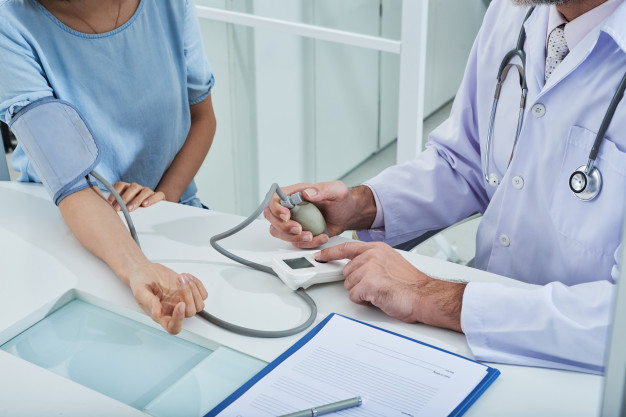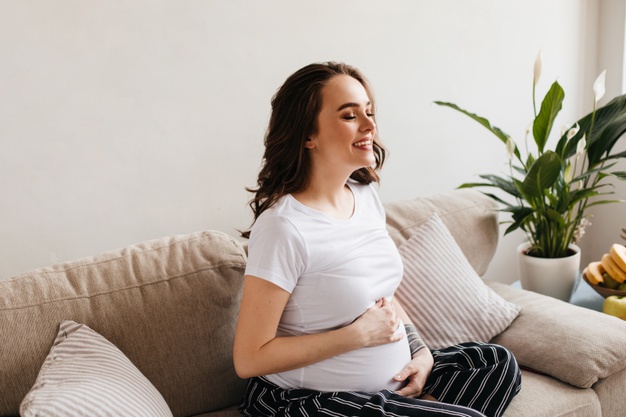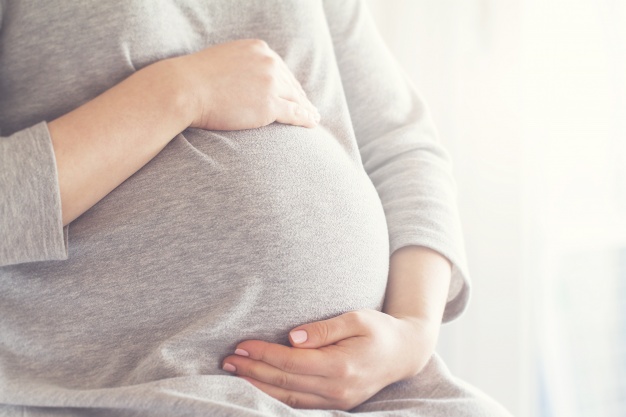Pregnant women often experience various complications and these complications should be prevented in proper manner otherwise it may affect the maternal health.
Below points will discuss about the complications which are commonly faced by pregnant women and their preventive measures –
Morning sickness
- It is a very common complication of pregnancy generally characterized by nausea and occasional vomiting especially at morning
- It can be disruptive as well as distressing
- It is mainly caused by the adaptation to HCG hormone (human chorionic gonadotropin hormone) during first trimester
- If the vomiting persists for long period then pregnant women may develop a condition named hyperemesis gravidarum, which is very severe in its manifestation and proper medical treatment is required for this condition
Preventive measures
- The symptoms can be easily improved with consumption of B vitamins especially Vitamin B6. Foods, which contain Vitamin B6 such as poultry, soybean, peanut, wheat germ, banana, oats etc should be included in the diet
- Consumption of ginger is also very effective for improving the symptoms of morning sickness
- It is better to have dry biscuits before rising from beds, as it helps to decrease nausea
- Small amount of meal should be consumed frequently
- Consumption of protein rich snacks, especially which are bland and dry in nature, play imperative role in preventing morning sickness
- It is better to consume liquid between meal rather than consuming it with meal
- Consumption of such foods, which are responsible for triggering nausea as well as vomiting like fried foods, flavored vegetables, large amount of coffee and spicy foods should be avoided
- It should be kept in mind that vomiting caused by morning sickness may develop dehydration, which is very much detrimental for maternal health thus it is better to maintain normal fluid and electrolyte balance of the body


Hemorrhoids
- It is another complication of pregnancy generally occurred during the later part of the gestational period
- It is characterized by developing enlarged veins within the anus, which often protrude through anal sphincter
- It is mainly caused by the downward pressure produced by increased weight of the baby
- It may develop a sensation of itching and burning
- It may also develop severe discomfort, as under the pressure of bowl movement it may rupture and bleed
Preventive measure
- It can be easily treated by consuming adequate fibre rich food
- Generally whole grain cereal products, oats, rye, barley, green leafy vegetables, pears, oranges, melon, berries, pulses, legumes, nuts, seeds, beans, peas are considered as the rich source of fibre thus these type of foods should be included in the diet of pregnant women
- Water should be consumed abundantly
- Proper rest should be taken
- Too much spicy food and fat rich food should be avoided because it may worsen the condition
- In most of the case hemorrhoid resolves after delivery but if it sustains then medical guidance is required

Hemorrhagic anemia and iron deficiency anemia
- Hemorrhagic anemia generally caused by excessive blood loss though it mainly occurs after delivery but it often occurs during pregnancy as well. In the case of ruptured tubal pregnancy or abortion severe bleeding occurred that may develop hemorrhagic anemia Whereas, iron deficiency anemia is considered as one of the most common type of complications experienced by maximum pregnant women generally caused by consuming a iron deficit diet and it is recognized as the leading cause of increasing rate of maternal morbidity and mortality
Preventive measure
- It is better to consume a diet, which is especially rich in iron, folic acid, Vitamin C and proteins as these nutrients play imperative role in synthesizing hemoglobin and also help in the maturation of RBC
- Diet should contain spinach, amaranth, liver, dates, sprouts, sesame, fish, egg and citrus fruits
- In severe case blood transfusion is necessary
Heartburn
- Pregnant women often experience heartburn, which is a feeling of fullness and it especially develops after consumption of a meal

- Pressure of enlarging uterus is mainly responsible for this discomfort
Preventive measure
- It is better to avoid the consumption of large meal at a time
- Small meal should be taken frequently
Constipation
- It is another complication of pregnancy generally occurred at the later stage of gestational period
- Increased pressure of enlarged uterus is considered as the main cause of developing constipation
Preventive measure
- Consumption of fibre rich food is the main remedial action
- Whole grain cereals, green leafy vegetables, fruits are the richest source of fibre thus these should be included in the diet
- Proper fluid intake and simple exercising also help to improve the symptoms of constipation
Pica
It is a psychological disorder characterized by developing an appetite for non food materials such as ice, chalk, gum, laundry starch etc
Preventive measure
Adaption of good feeding practice is the main preventive measure
Pregnancy induced hypertension
It is an acute hypertensive disorder also known as gestational hypertension generally develops after 20 weeks of gestation
Preventive measure

- It is better to avoid the consumption of too much salt
- Adequate fluid should be taken
- All the micronutrients should be consumed as per RDA

Aversion
- It is a very common complication of pregnancy, which is characterized by developing a sensation of repulsion against some foods as well as beverages like tea, coffee, eggs, fried foods etc, which are not previously disliked
- Physiological and sensory causes are considered as the main factors responsible for developing such complications
Preventive measure
- Due to aversion, if pregnant women are not able to consume foods, which are considered as very much important during pregnancy then the nutrients present in those foods should be replaced by other ways. For example if pregnant women have aversion to animal proteins like meat or fish or eggs then abundant plant proteins should be taken
- Foods can be prepared in different ways for improving palatability that can help to improve the symptoms of aversion
Craving
It is defined as a felling of compulsive urge for some foods like vegetables, fruits, whole grain cereals etc, which are not previously liked
 Preventive measures
Preventive measures
- It is better to monitor blood sugar level because hypoglycemia often increases craving
- Consumption of balance diet is very much important
Listeriosis
- It is an infectious disease caused by the bacteria Listeria monocytogenes
- Though it is very rare in pregnancy but it is very severe in its manifestation
- It affects the fetus very adversely and leads to abortion or delivery of an ill infant or still birth, thus it is recognized as a rare bacterial infection of gestational period with high mortality rate
Preventive measure
- The most important task is to maintain proper hygiene and sanitation as it helps to decrease the risk of developing infectious diseases
- It is better to consume a diet, which is significantly rich in protein, vitamins and minerals as consumption of such diet is closely related with strengthening the immune system, which ultimately helps to improve the resistance power of the body and increased resistance power helps to make the body able for fighting against infections more effectively
- Consumption of raw milk, undercooked meat, ripened cheese, and readymade salads should be strictly avoided as these types of foods may contain the bacteria
- Kitchen hygiene should also be maintained properly


Source:
Gadsby, R., Ivanova, D., Trevelyan, E., Hutton, J.L. and Johnson, S., 2020. Nausea and vomiting in pregnancy is not just ‘morning sickness’: data from a prospective cohort study in the UK. British Journal of General Practice, 70(697), pp.e534-e539.
Hainutdzinava, N., Weatherstone, K. and Worobey, J., 2017. Food Cravings and Aversions during Pregnancy: A Current Snapshot. J Pediatr Mother Care, 2(01), pp.1-5.
Johnson, D., 2017. PICA during Pregnancy. International Journal of Childbirth Education, 32(1).
Meher, S. and Duley, L., 2006. Rest during pregnancy for preventing pre‐eclampsia and its complications in women with normal blood pressure. Cochrane Database of Systematic Reviews, (2).
Saini, P., 2018. How to Prevent Hemorrhoids during Pregnancy. Skin.
Smith, C., Teng, F., Branch, E., Chu, S. and Joseph, K.S., 2019. Maternal and perinatal morbidity and mortality associated with anemia in pregnancy. Obstetrics and gynecology, 134(6), p.1234.
Wagner, C.L., Hollis, B.W., Kotsa, K., Fakhoury, H. and Karras, S.N., 2017. Vitamin D administration during pregnancy as prevention for pregnancy, neonatal and postnatal complications. Reviews in Endocrine and Metabolic Disorders, 18(3), pp.307-322.


